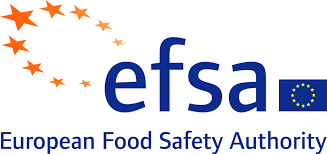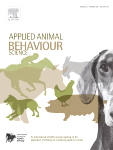Document type: scientific opinion published in the EFSA Journal
Authors: EFSA Panel on Animal Health and Welfare (AHAW): Søren Saxmose Nielsen, Julio Alvarez, Dominique Joseph Bicout, Paolo Calistri, Elisabetta Canali, Julian Ashley Drewe, Bruno Garin-Bastuji, Jose Luis Gonzales Rojas, Christian Gortázar Schmidt, Mette Herskin, Virginie Michel, Miguel Ángel Miranda Chueca, Barbara Padalino, Paolo Pasquali, Helen Clare Roberts, Hans Spoolder, Karl Stahl, Antonio Velarde, Arvo Viltrop, Christoph Winckler
Preview: In the framework of its Farm to Fork Strategy, the Commission is undertaking a comprehensive evaluation of animal welfare legislation. The present Opinion deals with the protection of small ruminants (sheep and goats) during transport. The main focus is on welfare of sheep during transport by road but other means of transport and concerns for welfare of goats during transport are also covered. Current practices related to transport of sheep during the different stages (preparation, loading and unloading, transit and journey breaks) are described. Overall, 11 welfare consequences were identified as being highly relevant for the welfare of sheep during transport based on severity, duration and frequency of occurrence: group stress, handling stress, heat stress, injuries, motion stress, predation stress, prolonged hunger, prolonged thirst, restriction of movement, resting problems and sensory overstimulation. These welfare consequences and their animal-based measures are described. A wide variety of hazards, mainly relating to inappropriate or aggressive handling of animals, structural deficiencies of vehicles and facilities, unfavourable microclimatic and environmental conditions and poor husbandry practices, leading to these welfare consequences were identified. The Opinion contains general and specific conclusions in relation to the different stages of transport. Recommendations to prevent hazards and to correct or mitigate welfare consequences have been developed. Recommendations were also developed to define quantitative thresholds for microclimatic conditions within the means of transport and spatial thresholds (minimum space allowance). The development of welfare consequences over time were assessed in relation to maximum journey time. The Opinion covers specific animal transport scenarios identified by the European Commission relating to the export of sheep by livestock vessels, export of sheep by road, roll-on-roll-off vessels and 'special health status animals', and lists welfare concerns associated with these.






